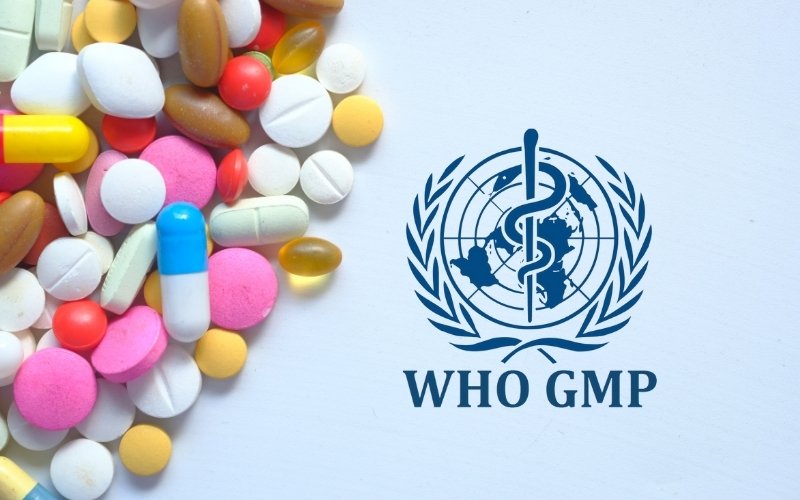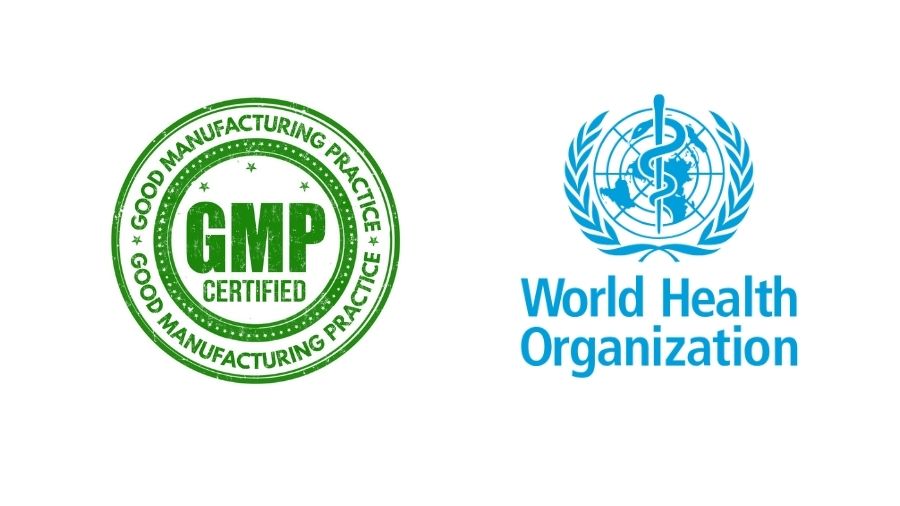
Understanding the Importance of WHO-GMP Certification
In the world of pharmaceuticals, product quality defines credibility. Whether you are a startup looking to launch your first range or an established player expanding into global markets, ensuring that your manufacturing partner holds a valid WHO-GMP (World Health Organization – Good Manufacturing Practices) certification is essential. This certification signifies that the facility consistently produces medicines that meet international quality, safety, and efficacy standards.
WHO-GMP lays down a framework covering every aspect of production — from the cleanliness of the facility and equipment calibration to personnel training and documentation control. It ensures that medicines are manufactured under conditions that minimize contamination, cross-mixing, or formulation errors.
For pharmaceutical companies, collaborating with a WHO-GMP certified manufacturer not only ensures high-quality output but also opens doors to global trade. Most export destinations, especially in Africa, Southeast Asia, and Latin America, require WHO-GMP compliance before registration or import approval.
However, many manufacturers in India claim to be WHO-GMP certified without holding a legitimate or valid certificate. Some display expired certifications or those issued by unauthorized bodies. Hence, verifying the authenticity of the manufacturer’s WHO-GMP certification becomes a vital due diligence step.
Doing so not only protects your business from regulatory penalties but also reinforces consumer trust. This guide explains the complete process — how to identify, verify, and evaluate a manufacturer’s WHO-GMP certification through official documents, government listings, and professional assessment methods. With these insights, you can make informed, confident decisions for long-term partnerships built on quality and compliance.

Step-by-Step Process to Verify WHO-GMP Certification
Verifying a manufacturer’s WHO-GMP status is not a one-step task — it’s a systematic process involving document review, online verification, and cross-checking with official authorities. Here’s how you can conduct a proper verification to ensure authenticity and transparency.
- Examine the Certificate
Start by requesting a copy of the WHO-GMP certificate directly from the manufacturer. Check these key points carefully:
- Issuing Authority : Certificates in India are issued by the State FDA or Drug Control Administration. Ensure it’s a legitimate state body.
- Validity Period : WHO-GMP certifications typically last two to three years. Check the issue and expiry dates.
- Scope of Certification : Some certificates are valid only for certain dosage forms like tablets, syrups, or injectables.
- Manufacturer Details : Verify that the company name and manufacturing site address match the official records.
- Verify with the Issuing Authority
Every Indian state has its own regulatory authority. To verify, visit the official websites of state drug departments (such as Gujarat FDCA, Maharashtra FDA, or Himachal Pradesh FDA). Most of these portals maintain updated lists of WHO-GMP certified manufacturing units.Search by company name or license number and confirm that the manufacturer appears in the active list. This is one of the most reliable ways to ensure validity.
- Contact the Licensing Authority Directly
If the certificate is not traceable online, reach out directly to the State FDA office through official email or contact forms. Provide details like the manufacturer’s name, license number, and certificate issue date. Regulators can confirm whether the certificate is active or expired.
- Check the CDSCO Portal
The Central Drugs Standard Control Organization (CDSCO) maintains a national repository of licensed pharmaceutical manufacturers. You can use the cdsco.gov.in portal to cross-check whether the manufacturer holds a valid manufacturing license and WHO-GMP approval.
- Review Additional Documents
Ask for copies of other certifications such as:
- Manufacturing License issued under the Drugs and Cosmetics Act
- ISO 9001:2015 or ISO 13485 certifications
- Product permission lists
Compare details like addresses and license numbers across documents. Any mismatch indicates possible irregularities.
- Evaluate Manufacturer Transparency
A legitimate WHO-GMP certified company will readily provide supporting documents and inspection records. Resistance, delays, or vague responses often suggest red flags. Transparency and cooperation are strong indicators of genuine certification.
- Seek Independent Verification
For maximum assurance, you can hire a third-party audit agency. These professional auditors directly verify the certificate with government departments and even inspect facilities if needed. It’s a smart step for companies planning large-scale collaborations or exports.
Following this systematic approach ensures your manufacturing partner operates under valid WHO-GMP compliance — protecting your brand from regulatory issues while maintaining product integrity and trust.
Evaluating the Manufacturer Beyond the Certificate
While a WHO-GMP certificate proves compliance, it doesn’t always reflect the manufacturer’s operational excellence. Before finalizing any partnership, evaluate their real-world quality standards, technical infrastructure, and reliability.
Manufacturing Infrastructure
Visit the facility if possible. Genuine WHO-GMP certified manufacturers maintain well-organized, hygienic environments with separate production zones for different formulations. Modern equipment, validated utilities, and cleanroom classifications are key indicators of operational quality.
Quality Control and Assurance Systems
Ask about their internal QA/QC setup. A reliable manufacturer conducts:
- Raw material testing for purity and potency
- In-process checks to monitor batch consistency
- Microbiological testing for sterile products
- Stability and validation studies to ensure long-term efficacy
Request to review a few batch records or internal audit reports — these documents reveal how seriously the company follows GMP protocols beyond paper compliance.
Technical and Regulatory Expertise
Check the manufacturer’s experience with international markets. Companies exporting to WHO-prequalified countries, or those holding EU-GMP or USFDA approvals, generally operate at higher quality levels. Their regulatory team should also be capable of assisting with dossiers and product registrations.
Team Competence
Evaluate the expertise of the staff. A trained workforce is critical to sustaining WHO-GMP standards. Ask about employee training programs, SOP reviews, and internal audits — these show how actively the company maintains compliance.
Client Reputation and References
Search for client feedback, online testimonials, or reviews from other pharma brands. A manufacturer with a long-standing reputation and repeat clientele demonstrates reliability and consistent performance.
R&D and Innovation Capacity
A good manufacturer should also support product innovation — offering assistance with formulation development, packaging design, or new dosage technologies. This reflects a forward-looking approach that benefits long-term partnerships.
Transparency and Communication
During negotiations, observe how promptly they share documents or respond to technical questions. Clear communication and openness about their processes reflect professionalism and integrity.
Sustainability and Compliance Monitoring
In today’s market, environmental compliance and sustainability also matter. Manufacturers following eco-friendly practices, waste management systems, and ethical sourcing add value to your brand’s reputation.
By analyzing these areas, you move beyond certificate validation to building a reliable, enduring partnership with a manufacturer that meets global standards in both compliance and performance.